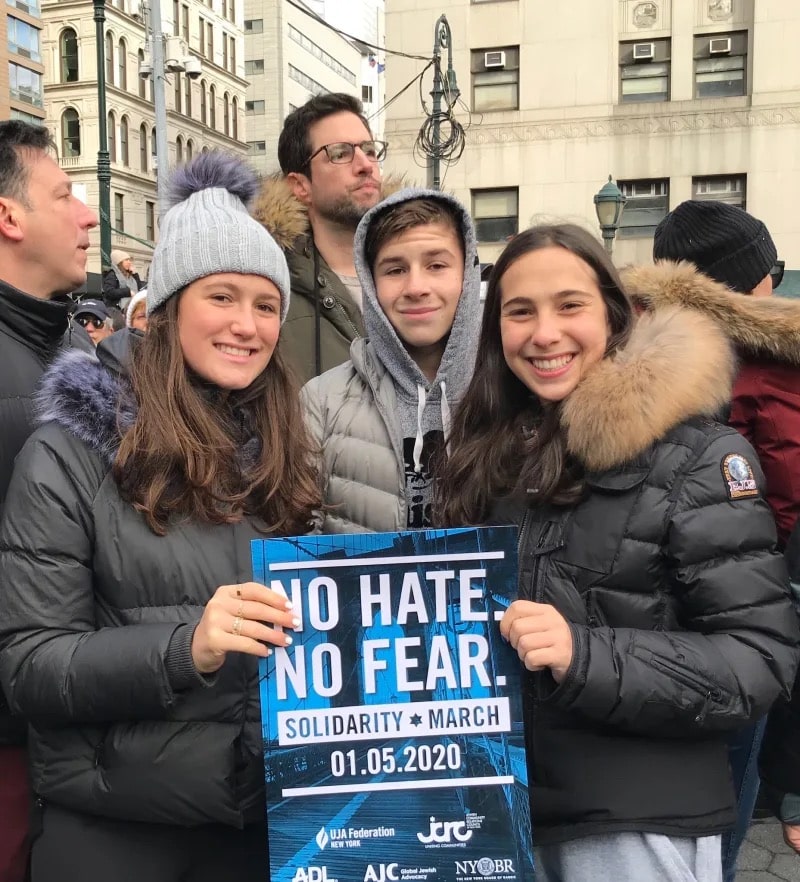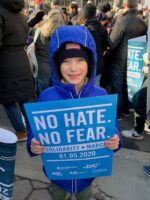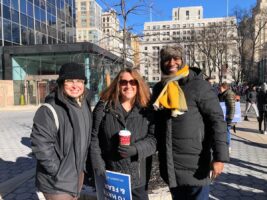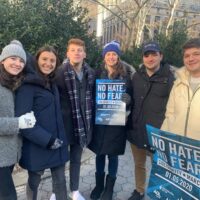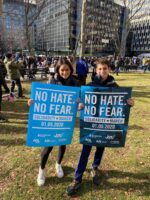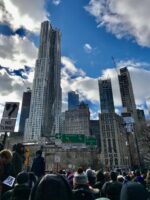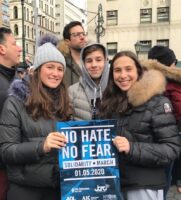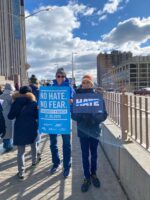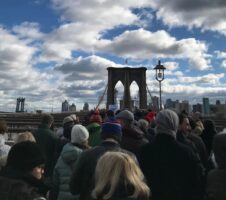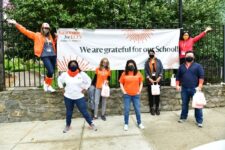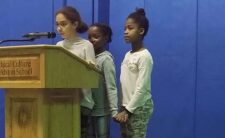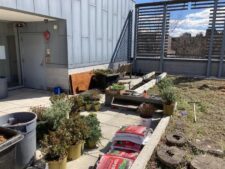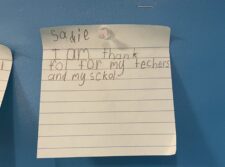Sunday, January 5, was a bright, brisk day. The sun warmed the faces of members of the Ethical Culture Fieldston School community as they marched, shoulder to shoulder, across the Brooklyn Bridge, carrying signs that read, “No Hate. No Fear.”
Members of the ECFS community joined tens of thousands of other participants to flood the streets of New York for the Solidarity March, which was organized by a coalition of Jewish community groups in response to recent Anti-Semitic attacks in the New York metropolitan area and across the country.
Tal Kaissar, a member of the ECFS Board of Trustees and the parent of an ECFS student, was deeply moved by the outpouring of support. “Thousands and thousands of people came, and it wasn’t just about Anti-Semitism. It was a message about no more hate.”
The Solidarity March united members of the ECFS community, with students, faculty, administrators, parents, and alumni all taking part. Starting at Foley Square on the Lower East Side, the route took marchers across the Brooklyn Bridge and into Downtown Brooklyn. The view from the Brooklyn Bridge was testament to how much enthusiasm the march attracted. “When we got halfway through the bridge, we looked forward and we looked backward, and all we saw was a sea of people holding signs,” says Kaissar. “You saw, because you were on the highest point so you were looking down at the two sides, just the sheer amount of people.”
Liz Fernández, Assistant Head of School for Ethical Education and Social Impact, was struck by the diversity of people she saw: “I saw rainbow flags with a Star of David in the middle. I saw people from many different racial and ethnic backgrounds marching in solidarity. There was a percussion line hyping up the audience that reminded me of our Percussion Ensemble and brought a smile to my face.”
For some, the march was reminiscent of the Climate Strike that took place on September 20, when dozens of ECFS students and faculty members joined the massive demonstrations in downtown Manhattan. Hilary W. ’22, who identifies as a Jewish woman and who is grappling with what global warming means for her generation, was inspired to attend both marches.
Thousands and thousands of people came, and it wasn’t just about Anti-Semitism. It was a message about no more hate.
As part of its mission to provide a responsive and relevant curriculum, ECFS encourages students to engage with political actions occurring throughout the city. “Letting us go to the environmental march, having the opportunity for us already there to make a difference” is an example of the school’s support, says Hilary.
Sara S. ’22, who also attended Sunday’s Solidarity March, agrees. “Just having students lead a lot of the movements against discrimination,” she explains, is one way ECFS empowers its students. This student-led focus is an extension of what occurs within the classroom; Sara credits her community service learning classes with empowering her to identify the causes of social problems and respond to them.
For those who attended the march on Sunday, the idea that friends and strangers alike could come together in a demonstration against violence and discrimination was among the most important takeaways. As Hilary explains, “The fact that groups of people can come together, especially in New York City, to try to make a change is really important.”
